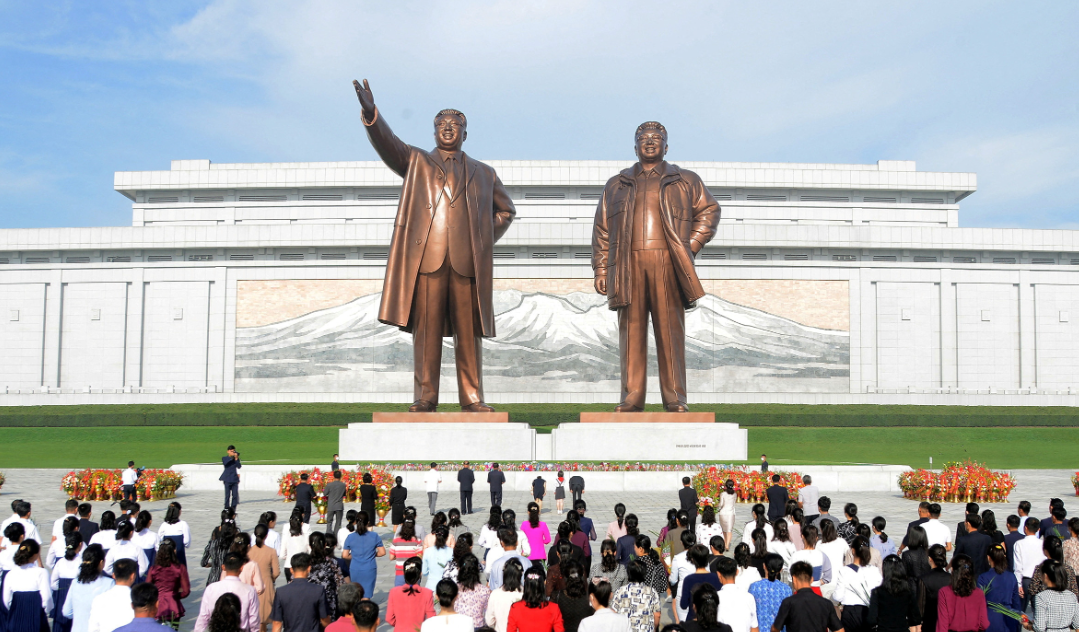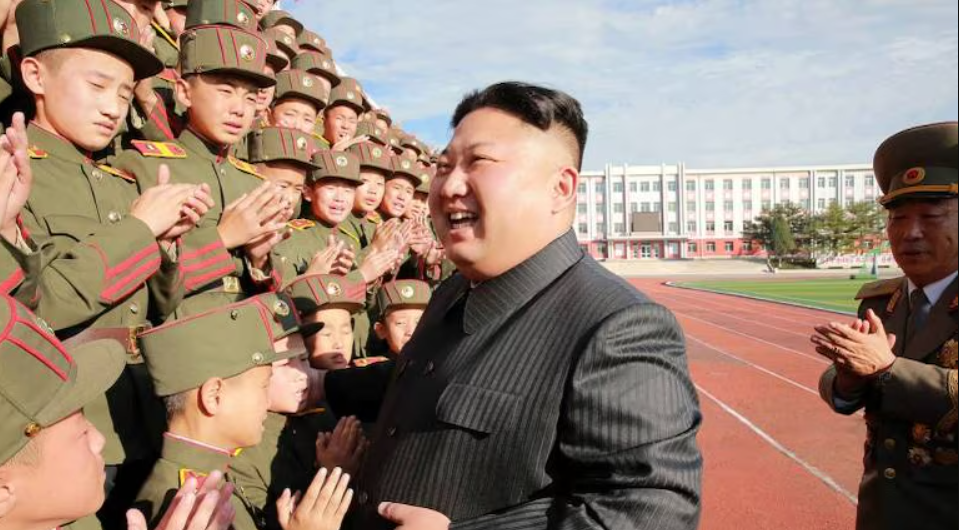Experts propose various strategies to address the North Korea issue, primarily focusing on diplomatic negotiations, economic sanctions, and cybersecurity measures. Many believe that direct dialogues involving all relevant parties, including North and South Korea, United States, China, Japan, and Russia, can lead to a peaceful resolution. They argue that sustained diplomacy could eventually lead to North Korea’s denuclearization, improving stability in the Korean Peninsula.
However, critics of this approach point out that North Korea has historically used talks as a stalling tactic while continuing its nuclear program. Hence, they advocate for a more stringent approach in the form of economic sanctions. The idea is to apply financial pressure to North Korea, forcing it to abandon its nuclear ambitions. This approach’s success largely depends on China, North Korea’s largest trading partner, and its willingness to enforce these sanctions.
Another aspect of the North Korea issue is its cyber capabilities. North Korea has been suspected of conducting cyberattacks on various global entities, often targeting financial institutions. Experts suggest enhancing cybersecurity measures, investing in advanced technology, and strengthening international cooperation against cyber threats. They also propose educating businesses and individuals about the potential dangers and preventive measures to protect themselves from cyberattacks.
Some experts also emphasize the importance of focusing on human rights issues in North Korea. They propose increasing global awareness and advocating for the rights of North Koreans, both within the country and those who have managed to escape. This could involve working with international organizations to provide humanitarian assistance to those in need, and putting pressure on North Korea to improve its human rights records.
Furthermore, experts also suggest the use of soft power, including cultural and educational exchanges, to influence North Korea. The idea is to promote understanding and mutual respect between North Korea and the international community, which could potentially lead to a more positive relationship.
In conclusion, experts propose a multi-pronged strategy to address the North Korea issue, combining diplomacy, economic pressure, cybersecurity measures, human rights advocacy, and soft power. However, they also acknowledge the complexity of the issue, and that a successful resolution requires persistence, patience, and the cooperation of all relevant parties.

Analyzing North Korea’s Current Situation: Expert Perspectives on the Crisis
North Korea’s current situation, as viewed by experts, appears to be at a critical junction. The nation is grappling with myriad challenges ranging from economic instability to escalating nuclear tensions. Renowned political scientists and global strategists have been closely monitoring North Korea’s progress, particularly in the realm of its nuclear program, as it has the potential to induce a significant shift in global power dynamics.
The overarching consensus among experts points towards a deepening crisis, which is further exacerbated by the country’s enigmatic leadership. The leadership’s persistent pursuit of nuclear advancement, often at the expense of its own economic and social welfare, has been a source of concern for global peacekeeping entities. The nation’s relentless focus on military prowess, coupled with its consistent isolation from international diplomacy, has led to a precarious state of affairs that continuously teeters on the brink of conflict.
The alarming humanitarian situation is another facet of the crisis. Widespread poverty, food scarcity, and basic human rights violations are rampant, largely due to the state’s oppressive regime and its disproportionate allocation of resources towards defense and nuclear capabilities. Such conditions have resulted in a populace living under severe distress, which in turn, fuels internal instability and compounds the overall crisis situation.
The economic outlook also remains dire. Severe sanctions imposed by the international community, in response to the nation’s nuclear pursuits, have crippled its economy. Consequently, North Korea faces severe financial constraints, which adversely impact its ability to import essential goods and sustain its populace, thereby deepening the humanitarian crisis.
In conclusion, experts perceive North Korea’s current situation as a complex crisis, interspersed with nuclear tensions, economic instability, and humanitarian distress. Addressing this crisis requires an intricate blend of diplomacy, strategic negotiating, and stringent monitoring to ensure stability and peace, both within the nation and at a global level.
Insights from Key Experts on the North Korea Crisis: What They Recommend
Renowned experts on global affairs and international relations have suggested several strategies to address the North Korea crisis, emphasizing the need for diplomacy and negotiations over military action. First, leading scholars propose that the international community should focus on engaging North Korea in dialogue. They believe that this approach can contribute to the gradual reduction of tensions, thereby opening a pathway towards a peaceful resolution.
Additionally, they recommend leveraging economic incentives, such as relief from sanctions or developmental aid, as a strategy to influence North Korea’s decision-making process.In contrast, some experts argue for a more assertive approach that involves exerting increased pressure on North Korea through stricter sanctions and isolation. They believe this method can cripple the regime’s ability to fund its nuclear programs and force it back to the negotiation table.
Another viewpoint, offered by think tanks and former diplomats, entails the involvement of regional powers such as China and Russia. They propose that these nations should be encouraged to play a more active role in mediating the conflict due to their considerable influence over North Korea.Moreover, experts in global security recommend a multi-pronged approach that combines elements of the aforementioned strategies. They argue for a balanced mix of diplomatic outreach, economic pressure, and regional collaboration to address the crisis effectively.
In conclusion, experts widely agree that the North Korea crisis necessitates a multifaceted solution that goes beyond military force. Whether it is through dialogue, economic pressure, regional involvement, or a combination of these strategies, the international community must work towards a peaceful resolution to the crisis.

Strategic Approaches to Resolving Tensions in North Korea: Expert Strategies
Addressing the tensions in North Korea requires an astute and strategic approach. Experts propose several strategies that are designed to alleviate pressure while fostering positive change. Firstly, sustained diplomatic engagement is key. This involves maintaining open channels of communication with North Korean leaders, thereby improving relations and creating opportunities for negotiation.
Secondly, experts advocate for the careful use of economic sanctions. While these measures can be punitive, they can also push North Korea towards more cooperative behaviour in the international sphere. However, it is critical to ensure that sanctions do not aggravate the humanitarian crisis in the country. Thirdly, it’s important to involve regional actors such as China and South Korea in managing the situation.
Their geographic proximity and economic ties to North Korea make them influential players in the resolution process. Fourthly, experts encourage the promotion of people-to-people exchanges. Such interactions can help build mutual understanding, reduce prejudices, and indirectly promote change from within North Korea. Finally, the international community should strive to address North Korea’s security concerns.
The country’s nuclear program, for instance, is partly justified by its perceived need to deter potential aggressors. By providing credible security assurances, the international community could incentivize North Korea to pursue denuclearization. These expert strategies are not foolproof, but they represent a considered approach to dealing with the complex challenges posed by North Korea.
Potential Solutions to the North Korea Issue and Their Implications: Expert Opinions
Potential solutions to the North Korea issue and their implications have been the subject of numerous debates among global foreign policy experts. One option often proposed is diplomatic engagement. Advocates believe that dialogue and negotiation can result in Pyongyang agreeing to nuclear disarmament, which would alleviate the military threat the country poses. However, critics argue this approach may be viewed as appeasement and could inadvertently legitimize the regime.
Another frequently discussed alternative is economic sanctions. By applying pressure on North Korea’s economy, it is hoped the regime will be forced to change its behavior. However, this approach has not proven successful thus far, and many argue that sanctions only serve to exacerbate the hardships faced by ordinary citizens, without significantly affecting the ruling elite.
A more aggressive strategy is military intervention. While this could potentially eliminate the nuclear threat, it carries a high risk of devastating conflict and significant loss of life, not to mention the political and humanitarian crises that would likely follow. Some experts propose a blend of these strategies, combining diplomatic efforts with economic measures and maintaining a credible military deterrence. However, each approach carries significant potential consequences, and there is no consensus on an optimal strategy. The North Korea issue is complex, and its resolution requires careful consideration of the potential risks and benefits of each possible solution.

The Role of International Collaboration in Solving the North Korea Crisis: Experts Weigh In
International collaboration plays a pivotal role in addressing the North Korea crisis, according to various experts. It is paramount to consider the multifaceted nature of the issue, which includes nuclear proliferation, human rights abuses, and regional instability. As such, a multi-pronged approach anchored on global cooperation is ideal. The United Nations, for instance, can leverage its platform to foster dialogue and mediate conflicts. Conversely, regional bodies such as ASEAN and the Six-Party Talks involving Russia, China, Japan, South Korea, and the United States can provide more localized solutions.
Experts also point out the importance of economic sanctions enforced by the international community to pressure North Korea into negotiating table, while also providing humanitarian aid to alleviate the suffering of its citizens. This delicate balance requires a unified global stance. Moreover, experts emphasize the need for diplomatic negotiations. Frequent and open communication channels with North Korea may result in better understanding and potentially peaceful resolutions.
In the same vein, scholars highlight the role of major powers such as the United States and China. Their influence and diplomatic capacity can significantly shape North Korea’s actions and policies. However, their involvement should align with the collective goals of the international community and not be driven by individual national interests.
Furthermore, experts suggest that international collaboration should also include sharing of intelligence and information about North Korea’s actions and capabilities among countries. This would aid in formulating appropriate and timely responses. In conclusion, experts believe that the North Korea crisis isn’t a problem that a single nation can solve alone. It requires a concerted, global effort, underpinned by empathy, understanding, and respect for international norms and principles, to bring about a peaceful resolution.
